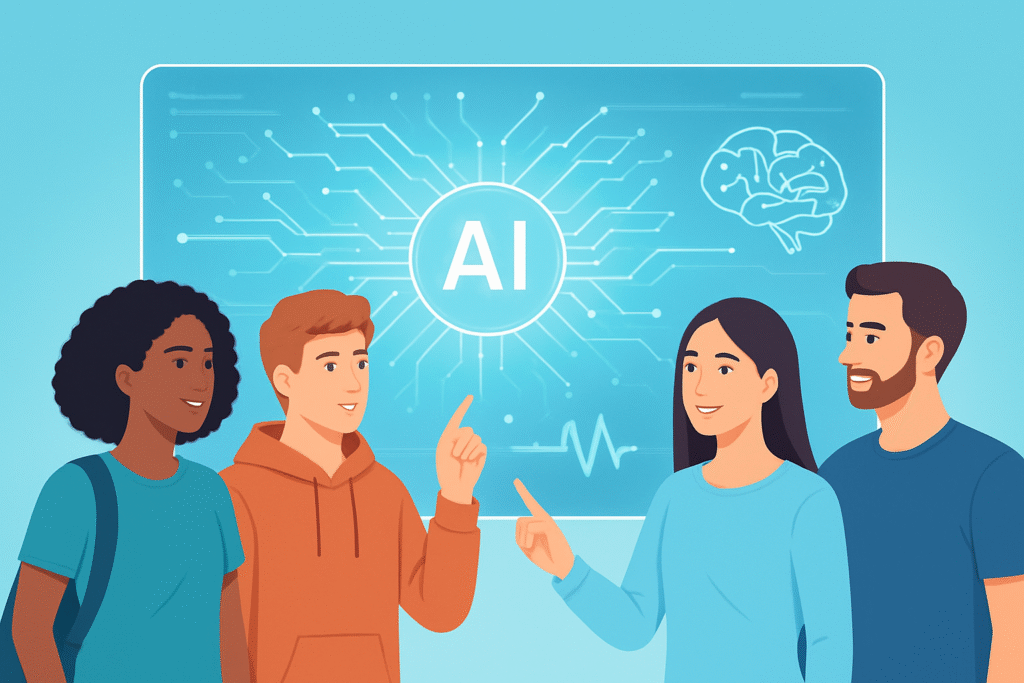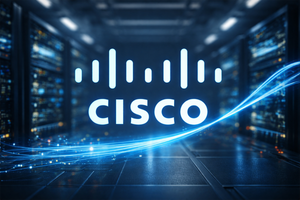
Older members of Generation Z, often dubbed "zillennials," are rapidly reshaping the landscape of health insurance, demonstrating a pronounced reliance on artificial intelligence (AI) tools to navigate, understand, and secure their coverage. This demographic, characterized by its digital nativism and pragmatic approach to complex systems, is increasingly turning away from traditional advisors in favor of AI-driven platforms. This significant shift in consumer behavior is challenging the insurance industry to adapt, pushing providers to innovate and embrace technological solutions to meet the expectations of a tech-savvy generation. As of late 2025, this trend is not just a preference but a necessity, especially with health insurance premiums on ACA marketplaces projected to increase by an average of 26% in 2026, making the need for efficient, easy-to-use tools more critical than ever.
AI's Technical Edge: Precision, Personalization, and Proactivity
The health insurance landscape for consumers is undergoing a significant transformation driven by advancements in Artificial Intelligence (AI) technology. These new AI tools aim to simplify the often complex and overwhelming process of selecting health insurance, moving beyond traditional, generalized approaches to offer highly personalized and efficient solutions.
Consumers are increasingly interacting with AI-powered tools that leverage various AI subfields. Conversational AI and chatbots are emerging as a primary interface, with tools like HealthBird and Cigna Healthcare's virtual assistant utilizing advanced natural language processing (NLP) to engage in detailed exchanges about health and insurance plan options. These systems are designed to understand and respond to consumer queries 24/7, provide policy information, and even assist with basic claims or identifying in-network providers. Technical specifications include the ability to ingest and process personal data such as income, health conditions, anticipated coverage needs, prescriptions, and preferred doctors to offer tailored guidance. UnitedHealth Group (NYSE: UNH) anticipates that AI will direct over half of all customer calls by the end of 2025.
Natural Language Processing (NLP) is crucial for interpreting unstructured data, which is abundant in health insurance. NLP algorithms can read and analyze extensive policy documents, medical records, and claim forms to extract key information, explain complex jargon, and answer specific questions. This allows consumers to upload plan PDFs and receive a clear breakdown of benefits and costs. Furthermore, by analyzing unstructured data from various sources alongside structured medical and financial data, NLP helps create detailed risk profiles to suggest highly personalized insurance plans.
Predictive analytics and Machine Learning (ML) form the core of personalized risk assessment and plan matching. AI/ML models analyze vast datasets, including customer demographics, lifestyle choices, medical history, genetic predispositions, and real-time data from wearable devices. This enables insurers to predict risks more accurately and in real time, allowing for dynamic pricing strategies where premiums can be adjusted based on an individual's actual behavior and health metrics. This proactive approach, in contrast to traditional reactive models, allows for forecasting future healthcare needs and suggesting preventative interventions. This differs significantly from previous approaches that relied on broad demographic factors and generalized risk categories, often leading to one-size-fits-all policies. AI-driven tools offer superior fraud detection and enhanced efficiency in claims processing and underwriting, moving from weeks of manual review to potentially seconds for simpler claims.
Initial reactions from the AI research community and industry experts as of November 2025 are characterized by both strong optimism and significant caution. There's a consensus that AI will streamline operations, enhance efficiency, and improve decision-making, with many health insurers "doubling down on investments for 2025." However, pervasive compliance concerns mean that AI adoption in this sector lags behind others. Ethical quandaries, particularly concerning algorithmic bias, transparency, data privacy, and accountability, are paramount. There is a strong call for "explainable AI" and robust ethical frameworks, with experts stressing that AI should augment human judgment rather than replace it, especially in critical decision-making. Regulations like the EU AI Act and Colorado's SB21-169 are early examples mandating transparency and auditability for healthcare AI tools, reflecting the growing need for oversight.
Competitive Landscape: Who Benefits in the AI-Powered Insurance Race
The increasing reliance of zillennials on AI for health insurance selection is profoundly reshaping the landscape for AI companies, tech giants, and startups. This demographic, driven by their digital fluency and desire for personalized, efficient, and cost-effective solutions, is fueling significant innovation and competition within the health insurance technology sector.
AI Companies (Specialized Firms) are experiencing a surge in demand for their advanced solutions. These firms develop the core AI technologies—machine learning, natural language processing, and computer vision—that power various insurance applications. They are critical in enabling streamlined operations, enhanced fraud detection, personalized offerings, and improved customer experience through AI-powered chatbots and virtual assistants. Firms specializing in AI for fraud detection like Shift Technology and dynamic pricing like Earnix, along with comprehensive AI platforms for insurers such as Gradient AI and Shibumi, will see increased adoption.
Tech Giants like Alphabet (NASDAQ: GOOGL), Amazon (NASDAQ: AMZN), Apple (NASDAQ: AAPL), and Microsoft (NASDAQ: MSFT) are well-positioned to capitalize on this trend due to their extensive AI research, cloud infrastructure, and existing ecosystems. They can offer scalable AI platforms and cloud services (e.g., Google Cloud's Vertex AI, Microsoft Azure AI) that health insurers and startups use to build and deploy their solutions. Leveraging their expertise in big data analytics, they can process and integrate diverse health data sources for deeper insights. Companies like Apple (HealthKit) and Google (Google Health) can integrate health insurance offerings seamlessly into their consumer devices and platforms, leveraging wearable data for proactive health management and premium adjustments. Strategic partnerships and acquisitions of promising AI healthtech startups are also likely.
The health insurance AI market is a fertile ground for Startups (Insurtech and Healthtech), attracting robust venture investment. Startups are currently capturing a significant majority (85%) of generative AI spending in healthcare. They often focus on specific pain points, developing innovative solutions like AI-powered virtual health assistants, remote patient monitoring tools, and personalized nutrition apps. Their agility allows for rapid development and deployment of cutting-edge AI technologies, quickly adapting to evolving zillennial demands. Insurtechs like Lemonade (NYSE: LMND), known for its AI-driven low premiums, and Oscar Health (NYSE: OSCR), which leverages AI for personalized plans, are prime examples.
The competitive implications are clear: hyper-personalization will become a standard, demanding tailored products and services. Companies that effectively leverage AI for automation will achieve significant cost savings and operational efficiencies, enabling more competitive premiums. Data will become a strategic asset, favoring tech companies with strong data infrastructure. The customer experience, driven by AI-powered chatbots and user-friendly digital platforms, will be a key battleground for attracting and retaining zillennial customers. Potential disruptions include a shift to real-time and continuous underwriting, the emergence of value-based healthcare models, and a significant transformation of the insurance workforce. However, regulatory and ethical challenges, such as concerns about data privacy, security, and algorithmic bias (highlighted by lawsuits like the one against UnitedHealthcare regarding its naviHealth predict tool), pose significant hurdles.
A Broader Lens: AI's Footprint in Healthcare and Society
The increasing reliance of older Gen Zers on AI for health insurance is a microcosm of larger AI trends transforming various industries, deeply intertwined with the broader evolution of AI and presenting a unique set of opportunities and challenges as of November 2025. This demographic, having grown up in a digitally native world, is demonstrating a distinct preference for tech-driven solutions in managing their health insurance needs. Surveys indicate that around 23% of Gen Z in India are already using generative AI for insurance research, a higher percentage than any other group.
This trend fits into the broader AI landscape through ubiquitous AI adoption, with 84% of health insurers reporting AI/ML use in some capacity; hyper-personalization and predictive analytics, enabling tailored recommendations and dynamic pricing; and the rise of generative AI and Natural Language Processing (NLP), enabling more natural, human-like interactions with AI systems. The impact is largely positive, offering enhanced accessibility and convenience through 24/7 digital platforms, personalized coverage options, improved decision-making by decoding complex plans, and proactive health management through early risk identification.
However, significant concerns loom large. Ethical concerns include algorithmic bias, where AI trained on skewed data could perpetuate healthcare disparities, and the "black box" nature of some AI models, which makes decision-making opaque and erodes trust. There's also the worry that AI might prioritize cost over care, potentially leading to unwarranted claim denials. Regulatory concerns highlight a fragmented and lagging landscape, with state-level AI legislation struggling to keep pace with rapid advancements. The EU AI Act, for example, categorizes most healthcare AI as "high-risk," imposing stringent rules. Accountability when AI makes errors remains a complex legal challenge. Data privacy concerns are paramount, with current regulations like HIPAA seen as insufficient for the era of advanced AI. The vast data collection required by AI systems raises significant risks of breaches, misuse, and unauthorized access, underscoring the need for explicit, informed consent and robust cybersecurity.
Compared to previous AI milestones, the current reliance of Gen Z on AI in health insurance represents a significant leap. Early AI in healthcare, such as expert systems in the 1970s and 80s (e.g., Stanford's MYCIN), relied on rule-based logic. Today's AI leverages vast datasets, machine learning, and predictive analytics to identify complex patterns, forecast health risks, and personalize treatments with far greater sophistication and scale. This moves beyond basic automation to generative capabilities, enabling sophisticated chatbots and personalized communication. Unlike earlier systems that operated in discrete tasks, modern AI offers real-time and continuous engagement, reflecting a more integrated and responsive AI presence. Crucially, this era sees AI directly interacting with consumers, guiding their decisions, and shaping their user experience in unprecedented ways, a direct consequence of Gen Z's comfort with digital interfaces.
The Horizon: Anticipating AI's Next Evolution in Health Insurance
The integration of Artificial Intelligence (AI) in health insurance is rapidly transforming the landscape, particularly as Generation Z (Gen Z) enters and increasingly dominates the workforce. As of November 2025, near-term developments are already visible, while long-term predictions point to a profound shift towards hyper-personalized, preventative, and digitally-driven insurance experiences.
In the near term (2025-2027), AI is set to further enhance the efficiency and personalization of health insurance selection for Gen Z. We can expect more sophisticated AI-powered personalization and selection platforms that guide customers through the entire process, analyzing data and preferences to recommend tailored life, medical, and critical illness coverage options. Virtual assistants and chatbots will become even more prevalent for real-time communication, answering complex policy questions, streamlining purchasing, and assisting with claims submissions, catering to Gen Z's demand for swift, efficient, and digital communication. AI will also continue to optimize underwriting and claims processing, providing "next best action" recommendations and automating simpler tasks to expedite approvals and reduce manual oversight. Integration with digital health tools and wearable technology will become more seamless, allowing for real-time health monitoring and personalized nudges for preventative care.
Looking to the long term (beyond 2027), AI is expected to revolutionize health insurance with more sophisticated and integrated applications. The industry will move towards preventative AI and adaptive risk intelligence, integrating wearable data, causal AI, and reinforcement learning to enable proactive health interventions at scale. This includes identifying emerging health risks in real time and delivering personalized recommendations or rewards. Hyper-personalized health plans will become the norm, based on extensive data including lifestyle habits, medical history, genetic factors, and behavioral data, potentially leading to dynamically adjusted premiums for those maintaining healthy lifestyles. AI will play a critical role in advanced predictive healthcare, forecasting health risks and disease progression, leading to earlier interventions and significant reductions in chronic disease costs. We will see a shift towards value-based insurance models, where AI analyzes health outcomes data to prioritize clinical efficacy and member health outcomes. Integrated mental health AI, combining chatbots for routine support with human therapists for complex guidance, is also on the horizon. The ultimate vision involves seamless digital ecosystems where AI manages everything from policy selection and proactive health management to claims processing and customer support.
However, significant challenges persist. Data privacy and security remain paramount concerns, demanding transparent consent for data use and robust cybersecurity measures. Algorithmic bias and fairness in AI models must be continuously addressed to prevent perpetuating healthcare disparities. Transparency and explainability of AI's decision-making processes are crucial to build and maintain trust, especially for a generation that values clarity. Regulatory hurdles continue to evolve, with the rapid advancement of AI often outpacing current frameworks. The insurance industry also faces a talent crisis, as Gen Z professionals are hesitant to join sectors perceived as slow to adopt technology, necessitating investment in digital tools and workforce reskilling.
Expert predictions reinforce this transformative outlook. By 2025, AI will be crucial for "next best action" recommendations in underwriting and claims, with insurers adopting transparent, AI-driven models to comply with regulations. The World Economic Forum's Future Jobs Report 2025 indicates that 91% of insurance employers plan to hire people skilled in AI. By 2035, AI is expected to automate 60-80% of claims, reducing processing time by 70%, and AI-powered fraud detection could save insurers up to $50 billion annually. McKinsey experts predict generative AI could lead to productivity gains of 10-20% and premium growth of 1.5-3.0% for insurers. The consensus is that AI will redefine efficiency, compliance, and innovation, with early adopters shaping the industry's future.
Conclusion: A Digital-First Future for Health Insurance
The rapid embrace of AI by older Gen Zers for health insurance selection is not merely a passing trend but a fundamental redefinition of how individuals interact with this critical service. This generation's digital fluency, coupled with their desire for personalized, efficient, and transparent solutions, has created an undeniable momentum for AI integration within the insurance sector.
The key takeaways are clear: Gen Z is confidently navigating health insurance with AI, driven by a need for personalization, efficiency, and a desire to overcome "benefit burnout" and "planxiety." This shift represents a pivotal moment in AI history, mainstreaming advanced AI into crucial personal finance decisions and accelerating the modernization of a traditionally conservative industry. The long-term impact will be transformative, leading to hyper-personalized, dynamic insurance plans, largely AI-driven customer support, and a deeper integration with preventive healthcare. However, this evolution is inextricably linked to critical challenges surrounding data privacy, algorithmic bias, transparency, and the need for adaptive regulatory frameworks.
As of November 17, 2025, what to watch for in the coming weeks and months includes how AI tools perform under the pressure of rising premiums during the current open enrollment season, and how insurers accelerate their AI integration with new features and digital platforms to attract Gen Z. We must also closely monitor the evolution of AI governance and ethical frameworks, especially any public "fallout" from AI-related issues that could shape future regulations and consumer trust. Furthermore, observing how employers adapt their benefits education strategies and the impact of AI-driven personalization on uninsured rates will be crucial indicators of this trend's broader societal effects. The talent acquisition strategies within the insurance industry, particularly how companies address the "AI disconnect" among Gen Z professionals, will also be vital to watch.
The convergence of Gen Z's digital-first mindset and AI's capabilities is setting the stage for a more personalized, efficient, and technologically advanced future for the health insurance industry. This is not just about technology; it's about a generational shift in how we approach healthcare and financial well-being, demanding a proactive, transparent, and intelligent approach from providers and regulators alike.
This content is intended for informational purposes only and represents analysis of current AI developments.
TokenRing AI delivers enterprise-grade solutions for multi-agent AI workflow orchestration, AI-powered development tools, and seamless remote collaboration platforms.
For more information, visit https://www.tokenring.ai/.





